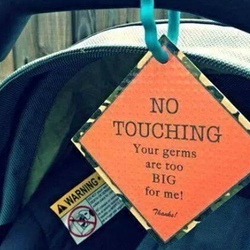What We Can Learn From Twins: Nature vs. Nurture
by Liz Coffman
Aug 24, 2018
The concept of nature vs. nurture has been debated for centuries among philosophers and psychologists.
The question has always been, how much of a child's development is dependent upon genes, and how much is influenced by environmental factors?
The answer may not be as simplistic as you think. According to Nancy Segal, a psychologist at California State University,
“A strict dichotomy between genes and environment is no longer relevant; they work in concert ... In an individual person, the contributions of genes and the environment are inestimable, but on a population basis we can estimate how much person-to-person variation is explained by genetic and environmental differences.”
Article Continues Below Advertisement
Decades-long studies of identical and fraternal twins who had been separated at an early age show that a child's development is a delicate combination between genes, environmental, and epigenetic differences (environmental factors that turn certain genes on or off).
Many parents of twins, or even triplets, can identify with this. Author Jane E. Brody shares her experience with raising her twin boys in this article:
"Although they shared all their genes and grew up with the same adoring parents, clearly there were differences in these boys that had been influenced by other factors in their environment, both prenatal and postnatal."
If you are interested in learning more, view the original post here.
Article Continues Below Advertisement
Liz Coffman
Liz Coffman has worked in the advertising industry for over 7 years and is passionate about connecting people to the world around them through her writing. Based in the Pacific Northwest, Liz is also a professional musician, avid rock climber, hiker and adventure seeker.







